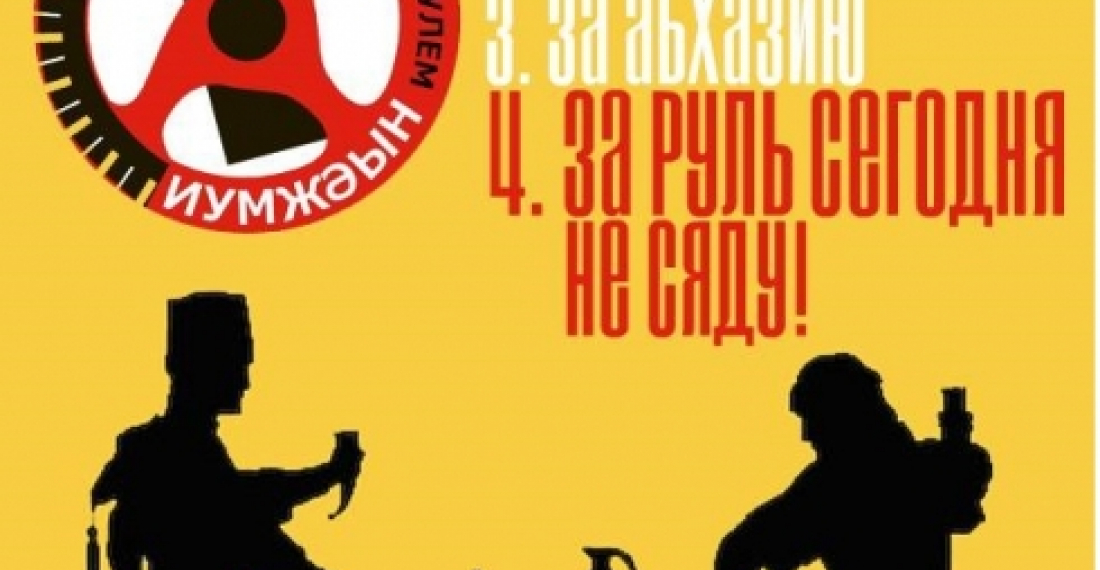Abkhazia has one of the highest per capita road fatality rates in the region; a fact often obscured by the territory's status as a statistical "black hole".
By Joseph Alexander Smith
The break-away republic of Abkhazia usually garners a mention in the press only in the context of the unresolved conflict with Georgia and ever-deepening ties with Russia. However, inside Abkhazia itself, the alarmingly high rate of fatalities on the territory's roads has become an increasingly hot topic, spurring the republic's authorities into action.
The figures are indeed shocking. During the first 11 months of 2014, the republic's road inspectorate, known as GAI, recorded 104 traffic accidents in which 126 were wounded and 48 were killed with a further 13 fatalities in December. With a population of around 240, 000 people, these figures give Abkhazia one of the highest per capita road fatality rates in the region; a fact often obscured by the territory's status as a statistical "black hole": Abkhazia is recognized by all but a handful of UN member states as part of Georgia.
"Everybody is affected directly or indirectly" says Madina Sulava, a civil society activist from Sukhumi. "Almost every week an accident occurs which takes the lives of several people, mainly young guys. Abkhazia is a comparatively small society, so everybody knows each other and is aware of these accidents."
"Three years ago my cousin died in a car accident" she adds. "He was driving at high speed and did not manage to deal with his car in a danger zone. He left behind him a two-year old son, and his second son was born a month after his death."
In recent months, some road-safety activists have been claiming that as many civilians have died in road accidents in Abkhazia since the territory's war of secession from Georgia in 1992-1993 than died in the fighting itself. Abkhazia claims around 1,800 civilian deaths in that conflict and according to deputy head of GAI, Batal Khondzia, while the number of road fatalities since the early 90s is not quite that high yet, it is certainly close.
"If we take the average [fatality] figure it's between 40 and 70 people a year" Khondzia says. "The main cause of fatalities is exceeding speed limits. Another thing is that the roads need to be repaired. What we have today is many young people buying big powerful cars. The roads [in Abkhazia] are hilly with many turns and they're in a bad condition ... Young people are driving these cars pretty fast and this has tragic consequences."
Khondzia is one of a team of officials working to reduce road fatalities in an initiative driven by the republic's new interior minister, Raul Lolua. After his appointment to the post in the wake of the dismissal of ex-President Aleksandr Ankvab's government in summer last year, Lolua has been active in highlighting the issue of fatalities on Abkhazia's roads. He regularly shares articles on road safety on his Facebook page, as well as posting live from GAI's inspections on the roads, providing statistics on fatalities, injuries and traffic code violations as they occur.
"First I would say that when he came, he tightened up the work [of GAI]" Khondzia says. "He demands more from his employees ... he also demands [the same level of work] from everyone regardless of position. We can see that he is very eager to improve the situation and that he wants to put everything in order." As we speak, cleaning ladies mop the corridors as workers refurbish the crumbling, soviet-era offices of the road inspectorate. But the make-over of GAI is not merely cosmetic: after taking office, Lolua brought in a new head of the road inspectorate.
One of the civil society initiatives that Lolua has been sharing most actively on his wall is the campaign "Ya nye p'yu za rulem" or "I don't drink at the wheel", which has been emblazoned on billboards in the Abkhaz capital Sukhumi. Stickers featuring the slogan and logo have also been printed and appear around the city. According to GAI, driving while intoxicated is one of the top three causes of fatal road accidents.
Lolua's team-up with online campaigning has been warmly received by civil society activists. "[The minister's team] seem to be transparent and are sharing their new initiatives" Sulava says. "In addition, they seem to be listening to suggestions on how to solve the issue coming from the population. The ministry of the interior is quite active on Facebook, on its official page, where any user can ask them a questions and have a conversation on any topic."
Given Abkhazia's small size, it's hoped the message of safe driving can be 'driven home' soon enough to prevent further tragedies on the roads. "No matter where you go, everywhere you'll hear people talking about this" says Khondzia. "This is a time when we all have to stand together and stop these fatalities on the road. I'm not talking about small violations of the traffic code. There's absolutely no going back when someone's lying dead in the road."
source: Joseph Alexander Smith filed this report for commonspace.eu
photo: A poster cautioning against drinking and driving, part of an awareness campaign aimed at reducing traffic fatalities in Abkhazia.







